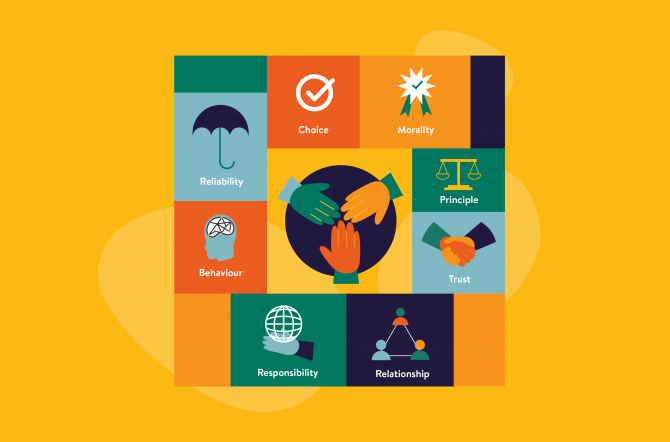Are you embracing cultural sensitivity in healthcare to its fullest extent? When health is on the line, understanding and adapting to patients’ diverse cultural backgrounds isn’t optional—it’s essential. This guide will arm you with the necessary tools and knowledge to navigate cultural intricacies with confidence, ensuring every patient receives the attentive and respectful care they deserve. Dive into evidence-based practices, strategies that bridge cultural gaps, and real-life success stories that highlight the transformative power of cultural sensitivity in healing and healthcare.
- Key Takeaways
- Understanding Cultural Sensitivity in Patient Care
- The Impact of Culture on Health and Healthcare Delivery
- Culturally Sensitive Care: Beyond Language Barriers
- The Role of Healthcare Professionals in Promoting Cultural Awareness
- Strategies for Healthcare Organizations to Enhance Cultural Sensitivity
- Overcoming Challenges in Culturally Sensitive Healthcare
- Celebrating Success Stories in Cultural Sensitivity
- Navigating Difficult Scenarios
- Summary
- Frequently Asked Questions

Key Takeaways
Cultural sensitivity in healthcare leads to better patient care through improved patient understanding and reduced disparities, which is achieved by implementing practices such as cultural humility and establishing trust with patients.
Patients’ cultural beliefs and family influence their health decisions, impacting adherence to medical advice. Healthcare providers can improve patient outcomes by embracing culturally competent communication and accommodating diverse healing practices.
Healthcare organizations must develop culturally competent strategies, provide staff training, adapt policies to diverse patient needs, and engage communities to create inclusive environments and address health inequities.
Understanding Cultural Sensitivity in Patient Care

Cultural sensitivity, or cultural competence, is a crucial element in patient care. It is founded on the belief that understanding specific cultures leads to better patient care. Cultural sensitivity can profoundly impact healthcare delivery, leading to:
a better understanding of patient needs
improved health outcomes
an enhanced patient experience
reduced disparities in care
This ongoing pursuit enhances the patient experience and reduces disparities in care.
Practicing cultural sensitivity varies depending on the location of practice, the workforce, and the specific health services being provided. Key strategies include practicing cultural humility, conscientious practice, and establishing trust with patients. The ultimate goal of cultural sensitivity in healthcare is to create a space for optimal health outcomes, free from prejudice, and providing optimal comfort and productivity for patients.
Recommended reading:
The Impact of Culture on Health and Healthcare Delivery

The patient’s cultural beliefs can significantly influence their understanding of health concepts and decisions concerning their medical care. This includes the degree to which they adhere to medical advice and health decisions, which are often shaped by their individual culture, customs, and values.
In some cultures, family involvement in healthcare decision-making is emphasized more strongly compared to others. Therefore, healthcare workers can improve patient outcomes and foster trust by considering how these cultural factors influence patient well-being. This approach to care from a culturally competent perspective, while also promoting health literacy, can significantly enhance patient outcomes.
Culturally Sensitive Care: Beyond Language Barriers

Cultural sensitivity in healthcare is multifaceted. It goes beyond language barriers and encompasses awareness of different cultural practices and integration of the patient’s cultural context to enhance health outcomes. Effective culturally sensitive communication ensures that nuances of culture, race, and other factors are not barriers to providing clear, respectful, and effective care.
Healthcare providers improve patient engagement by tailoring communication to individual cultural needs, accommodating alternative healing practices, and avoiding assumptions. Furthermore, cultural competence extends to language accommodations through offering interpreters and translating materials for linguistic clarity in medical information.
The Role of Healthcare Professionals in Promoting Cultural Awareness

Healthcare professionals play a critical role in promoting cultural awareness in a healthcare setting. Cultural competence involves:
Understanding one’s own cultural identity
Recognizing the varied cultural, social, religious, ethnic, and racial backgrounds of patients for more effective care
It’s a transformational process that acknowledges interdependence and aligns individuals with cultures beyond their own.
Emphasizing the Importance of Continuous Education
For healthcare professionals to better understand and respect patients’ cultural backgrounds, ongoing cultural competency training is necessary. Such training encourages healthcare providers to develop cultural competence by seeking knowledge of different cultures, gaining cultural awareness, and acquiring skills to conduct culturally specific assessments.
However, it is important to note that health care professionals, including healthcare provider, often lack proper education about healthcare disparities affecting diverse populations.
The Power of Effective Communication
Effective cross-cultural communication is a key aspect of cultural competency training for healthcare professionals. It enables providers to adapt to cultural differences more skillfully. Providers should employ communication strategies that are reflective, nonjudgmental, and respectful, taking into account cultural differences and individual patient preferences.
Enhancing cross-cultural communication competency can be achieved by recognizing and adapting to cultural differences, as well as using decision aids that incorporate cultural awareness to build trust with patients.
Building Trust Through Cultural Humility
Cultural humility plays a crucial role in building trust between healthcare providers and patients. It involves:
Being aware of one’s own biases and values as a clinician
Being open and receptive to the values and beliefs of patients from different cultural backgrounds
Engaging in a continuous process of self-evaluation and reflection
Better understanding implicit biases
Fostering an approach to patients characterized by openness and curiosity
This approach allows professionals to better understand their implicit biases and foster an approach to patients characterized by openness and curiosity.
Through strategies such as cultural humility, conscientious practice, and establishing trust, nurses can facilitate the provision of quality, culturally sensitive patient care.
Strategies for Healthcare Organizations to Enhance Cultural Sensitivity
Healthcare organizations have a crucial role in enhancing cultural sensitivity. They can:
Develop and implement culturally competent strategies
Provide intercultural communication skills training
Adapt policies to fulfill the diverse needs of patients as per the enhanced National Standards for Culturally and Linguistically Appropriate Services (CLAS).
By recruiting staff from underrepresented communities and building teams that reflect the diversity of patient populations, healthcare professionals can enhance empathy and provide tailored care, including mental health services.
Tailoring Health Services to Community Needs
To effectively meet the needs of a diverse population, healthcare organizations must adapt their services accordingly. This involves collecting demographic data, conducting surveys, and engaging in community outreach to understand and address cultural and linguistic requirements.
By forming partnerships with local entities and engaging in community events, health care can extend beyond clinical care, fostering collaboration and a proactive, preventative healthcare model.
Creating Inclusive Environments for Diverse Patients
Creating an inclusive environment that respects and accommodates the diverse cultural values and family dynamics of patients is paramount in healthcare. Inclusive policies and specialized training within healthcare organizations lead to improved care for LGBTQ+ patients.
Additionally, the development of interventions specifically designed to meet the needs of marginalized communities exemplifies culturally competent care.
Addressing Health Disparities and Inequities
Healthcare organizations play a crucial role in recognizing cultural differences and eliminating barriers to ensure equitable treatment for all patients. Improved cultural sensitivity is an essential aspect of reducing health disparities and elevating the overall quality of services provided in healthcare.
By personalizing care according to patients’ cultural backgrounds, healthcare organizations can foster a patient centered environment of respect for unique healthcare choices and practices.
Overcoming Challenges in Culturally Sensitive Healthcare
Implementing culturally sensitive healthcare can be challenging, especially due to resource limitations. However, allocating a specific budget for cultural sensitivity training can ensure that sufficient resources are dedicated to overcoming this challenge. Prioritizing cost-effective communication methods, such as leveraging technology for translation services, can help to overcome financial constraints while maintaining a commitment to culturally sensitive care.
Resistance from patients and staff who are unfamiliar with culturally sensitive practices can also be a challenge. Engaging in open dialogue can foster understanding and mitigate pushback. Providing evidence-based examples of improved health outcomes due to culturally sensitive care can help to convince skeptics of its value. Highlighting stories of positive patient experiences with culturally sensitive care can address resistance and promote acceptance among healthcare staff and patients.
Celebrating Success Stories in Cultural Sensitivity

Continuous cultural competency training for healthcare professionals has shown to improve patient satisfaction among minority groups. Nurses have significantly contributed to this advancement by fostering inclusive environments that honor the diverse backgrounds of patients. This collaboration and like-mindedness developed through cultural competence brings joy to both nurses and patients, optimizing the healthcare experience.
A remarkable example of this is the story of Kirsten, a nurse, who effectively applied cultural humility in her encounter with Mrs. Garcia, establishing an open dialogue and gaining insight into the patient’s cultural practices. Stories like Kirsten’s serve as an inspiration for healthcare professionals to continuously strive for cultural sensitivity in patient care.
Navigating Difficult Scenarios
Complex scenarios can arise in healthcare due to cultural or religious differences. Adults with a sound mental state have the legal right to refuse medical procedures for themselves. This can lead to ethical dilemmas in healthcare when patients decline treatments on cultural or religious grounds. Furthermore, healthcare providers must also consider the legal ramifications when parents refuse life-saving medical care for their children due to cultural or religious reasons.
Religious beliefs can significantly impact decisions about medical treatments and may lead to patients refusing certain medical practices, causing complex scenarios in patient care. In urgent cases, healthcare providers may be compelled to administer necessary medical procedures despite a patient’s religious refusal to protect the patient’s health or save a life. Cultural differences can be profound, with some patients preferring traditional healing practices and natural remedies to conventional Western medicine.
Summary
Cultural sensitivity in healthcare is a dynamic and evolving concept that involves recognizing, understanding, and respecting the diverse cultural backgrounds, beliefs, and behaviors of patients. It is an essential aspect of healthcare that can profoundly impact patient care, leading to better understanding of patient needs and improved health outcomes. By promoting cultural sensitivity, healthcare professionals can foster an inclusive environment that respects and accommodates the diverse cultural values and family dynamics of patients, ultimately leading to improved patient satisfaction and health outcomes.
Frequently Asked Questions
What 4 factors affect Cultural sensitivity?
Cultural sensitivity is affected by factors such as religion, ethnicity, national origin, and gender, as well as less obvious factors like age, education, socio-economic status, sexual orientation, and physical or mental challenges. These aspects play a crucial role in understanding and respecting diverse cultures.
What are cultural sensitivities in nursing?
Cultural sensitivities in nursing include providing information in the patient’s native language, offering culturally appropriate food choices, and involving family members in decision-making when possible. This knowledge, skills, attitudes, and beliefs help nurses work effectively in cross-cultural settings.
How can you demonstrate Cultural sensitivity to your patients?
To demonstrate cultural sensitivity to your patients, nurse practitioners should avoid making assumptions, explain every detail, ask about alternative healing approaches, withhold judgment, and accommodate and educate. This can help in providing better care for patients from diverse cultural backgrounds.
How does culture impact health and healthcare delivery?
Culture can have a significant impact on a patient’s understanding of health and their decisions regarding medical care. Adherence to medical advice and health decisions is often influenced by an individual’s culture, customs, and values.
What role do healthcare professionals play in promoting cultural awareness?
Healthcare professionals play a critical role in promoting cultural awareness by seeking knowledge of different cultures, gaining cultural awareness, and acquiring skills to conduct culturally specific assessments. This helps them provide better care to patients from diverse backgrounds.

Sean Bui, the founder and creative director of F.Learning Studio, is a respected leader in the e-learning and multimedia production industry. With over 10 years of experience, he has dedicated his career to helping organizations create engaging and impactful learning experiences.
Under his leadership, F.Learning Studio has grown into a trusted partner for organizations in the education, healthcare, and corporate training sectors, producing over 2,000 minutes of educational animation.




